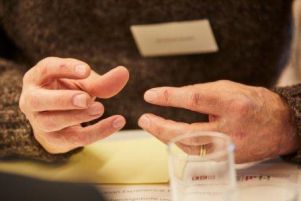MMCA: Scientific excellence and international network
At the beginning of October, the scientific and international advisory boards of the master programme "Management of Conservation Areas" are constituted.

When representatives of the Ramsar Convention, the Austrian Development Agency (ADA), the KfW Development Bank, Europarc, ProParks and Eurosite as well as leading scientists discuss protected areas, concentrated competence is at work. This has happened in the Scientific Advisory Board and in the International Advisory Board of the master programme Management of Conservation Areas. The advisory boards were constituted in two virtual workshops on 30 September and 3 October. "The valuable discussions and suggestions from these workshops help us to prepare for the next course," says Michael Jungmeier, scientific director of the master programme.
"The Ramsar Convention on the Protection of Wetlands is the oldest international conservation agreement. For us, dealing with urban and peri-urban wetlands and cultural ecosystem services are currently high on the agenda," reports Tobias Salathe from the Secretariat of the Ramsar Convention in Gland. Jürgen Fechter (KfW) and Sandra Wibmer (ADA) emphasise the importance of the Sustainable Development Goals of the Agenda 2030 for development cooperation institutions. These are to be given the appropriate status in the master programme. In several projects the development organisations would also deal with current conflicts between nature conservation and human rights. For the umbrella organisations Europarc, Eurosite and ProParks, Carol Ritchie, Naik Faucon and Erica Stanciu see a particular challenge in the qualification of already experienced protected area staff and stakeholders.
The scientific advisory board, headed by Franz Rauch (University of Klagenfurt), discusses in particular the concepts, methods and challenges of e-learning. The Board regards the interweaving of e-learning and highly interactive attendance times aimed at in the master programme as "trend-setting".
Finally, the internal procedures in the advisory boards are discussed and defined in the constituent workshops. The advisory boards will meet twice a year, once virtually and once personally. This is intended to facilitate an intensive exchange with the students. In some cases, internships (e.g. Europarc), mentorships as well as content support in finding topics and implementing seminar and master theses can also be offered.






